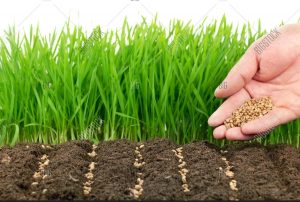Punjab has achieved 87% of the planned 34.5-35 lakh hectares of wheat sowing for the 2024-25 Rabi season, covering 30.24 lakh hectares by November 25. This progress is slightly behind 2023 when the state had reached 90% of its target by the same time, with over 31 lakh hectares sown. Despite the delays, experts from the Punjab Agricultural University (PAU) and the state agriculture department anticipate a healthy Rabi season ahead. The slower pace this year is attributed to delayed paddy harvesting, caused by late lifting and procurement of rice crops. Additionally, restricted supplies of di-ammonium phosphate (DAP), a preferred fertilizer for Rabi crops, posed challenges for timely sowing. Wheat planting, however, began on schedule on November 1, and the current cooler climate conditions are favorable for planting. Experts at PAU highlight that late sowing is not a major concern, as warmer early winter conditions have transitioned into an optimal climate for wheat cultivation. Additionally, the reduction in paddy residue burning indicates better field readiness for wheat sowing. In 2024 District-wise, Bathinda leads with 2.39 lakh hectares of wheat sown, followed by Ludhiana (2.28 lakh hectares), Patiala (2.23 lakh hectares), Sangrur (2.22 lakh hectares), and Muktsar (1.96 lakh hectares).Meanwhile, over 950 of the 2,980 mandis involved in procuring Kharif rice have already concluded operations, with most of the remaining 2,000 mandis expected to close by the end of this month. The conclusion of the paddy season is expected to accelerate the remaining wheat sowing activities across the state. In 2023, Punjab had already completed 90% of its wheat sowing by late November, surpassing 31 lakh hectares. Farmers faced delays on nearly 4 lakh hectares due to planting a third crop, such as green peas, between paddy and wheat. Despite these challenges, Punjab managed to sustain wheat acreage, which typically ranges between 34.50 and 35 lakh hectares annually. However, efforts to divert 4-5 lakh hectares to Rabi oilseeds, such as mustard, saw limited success. The weather in early winter 2023 was conducive to sowing, with crop conditions rated favorable. Experts noted reduced instances of paddy residue burning, a positive development for field readiness and sustainable farming practices. (Source:Hindustantimes)
